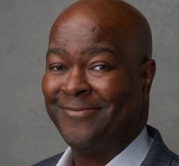4 ways to develop talented rookies

I watched the Nov. 12 Bears vs. Packers football game with special interest—and not just because I’m a longtime Bears fan leading a Wisconsin-based association. I was also reflecting on the learning going on.
For the uninitiated, the Bears organization started playing rookie Mitchell Trubisky as its first-string quarterback on Oct. 9. The No. 2 overall NFL draft pick, Trubisky was a starter for one season at North Carolina before going pro. During that season, he completed nearly 70 percent of his passes for 3,748 yards, 30 touchdowns and six interceptions playing for a solid team in the competitive Atlantic Coast Conference.
So clearly, the Bears drafted a quarterback with potential. But I was thinking that Sunday about how the Bears could develop this talent—and what credit unions could learn from the process. Here are four ways I think the Bears—and your credit union—can bring along the best players, including rookies:
-
- Commit to developing future leaders. When the Bears put Trubisky in the starter spot, they committed to helping him succeed. Just by committing to developing Trubisky, the Bears have taken an important first step toward him becoming a successful pro quarterback.
- Offer opportunities to learn on the job. A key way football players grow is by getting time on the field during a game that counts. You can practice a two-minute drill all day, but the pressure is different in a real game with a real opponent. At CUES, we have a variety of team members leading each of our strategic initiatives. This gives them opportunities to learn while they work for organizational wins. You can do the same in your shop.
- Look for formal learning opportunities that promote the application of theory. I’m sure the Bears coaches are teaching Trubisky their playbook—plus every QB success technique they can think of. But then they send him out on the practice field—and the game field—to apply what has been taught. When you shop for formal educational offerings for the team members you’re developing, look for ones (like CEO Institute) that include projects that ask attendees to apply their learning directly to their work.
- Look for educational opportunities that incorporate movement into the learning process. The research is clear that exercising the body has a positive and measurable impact on brain function. Football players have a built-in outlet for physical exercise that should enhance playbook study. Knowing that learning benefits from incorporating exercise, CUES complements formal learning with opportunities to ski, fish, hike or otherwise get outside and get the muscles moving during CUES Symposium: A CEO/Chairman Exchange and its “Execu” programs (Execu/Summit®, Execu/Net™ and its new Execu/Blend™).
When I wrote this column, Trubisky had five starts and led the Bears to victory twice, unfortunately not against the Packers. I’m hoping strategies like the four above will help Trubisky reach his potential and the Bears win more games. I hope they’ll help you develop your team members and achieve your goals, too.





